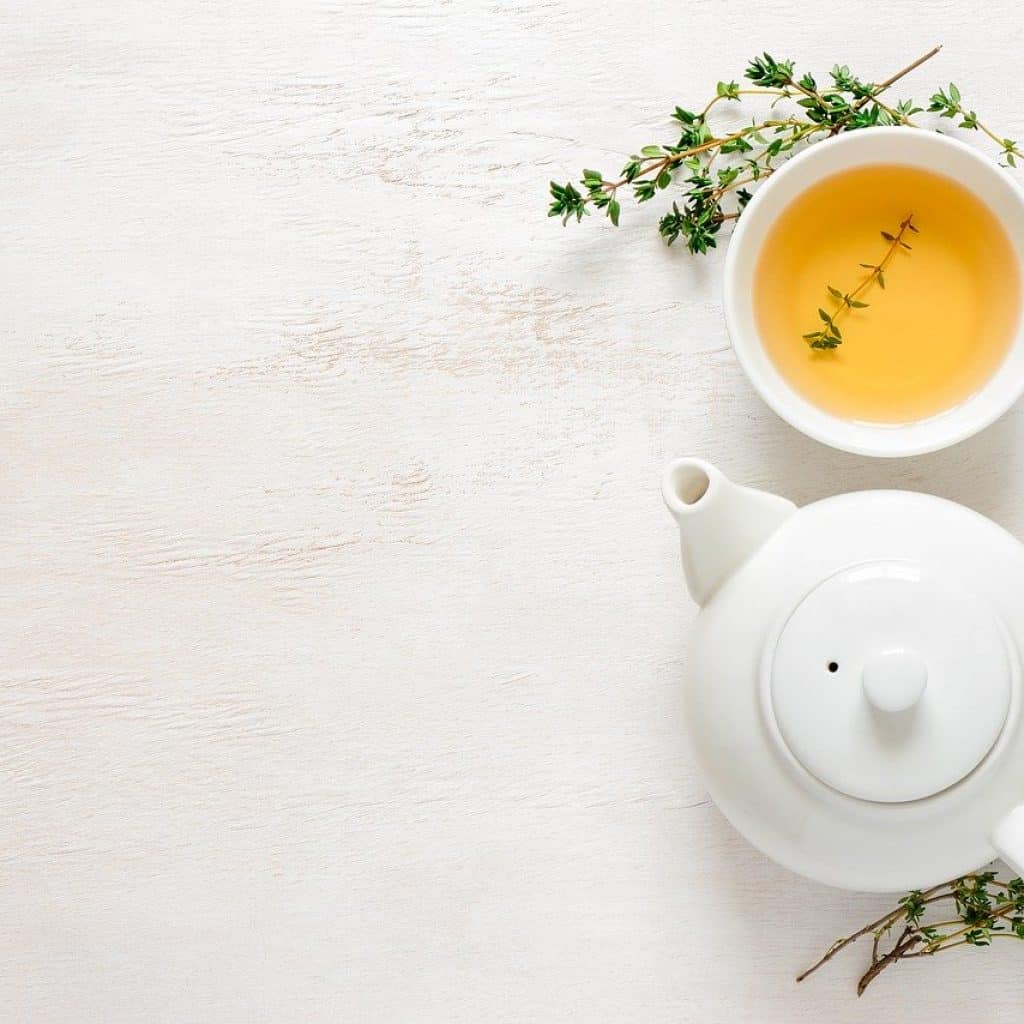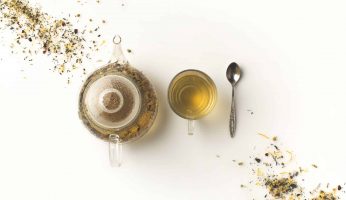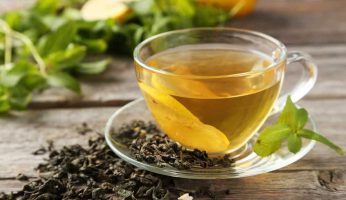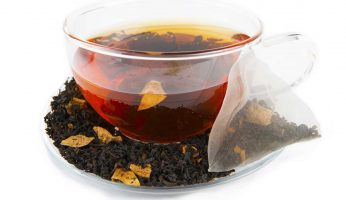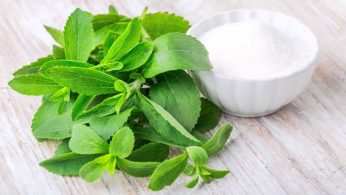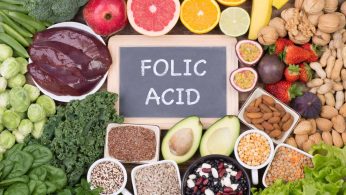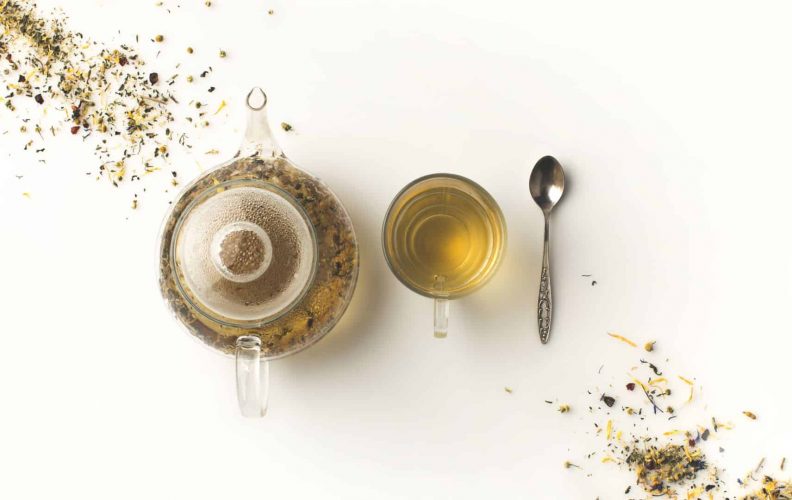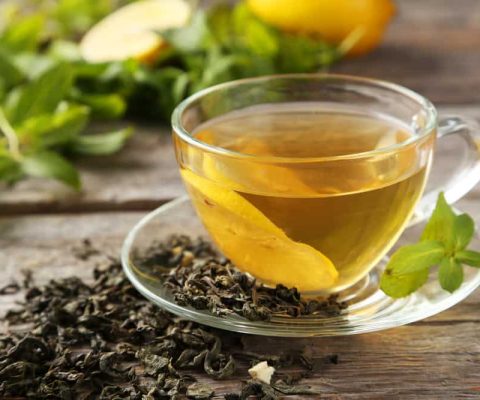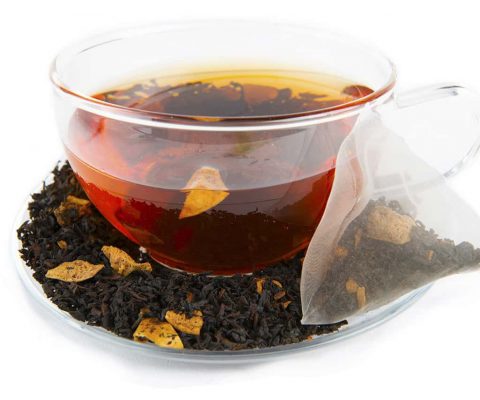Green Tea vs Coffee – Which Is Healthier?
Disclosure: We use affiliate links and may receive a small commission on purchases.
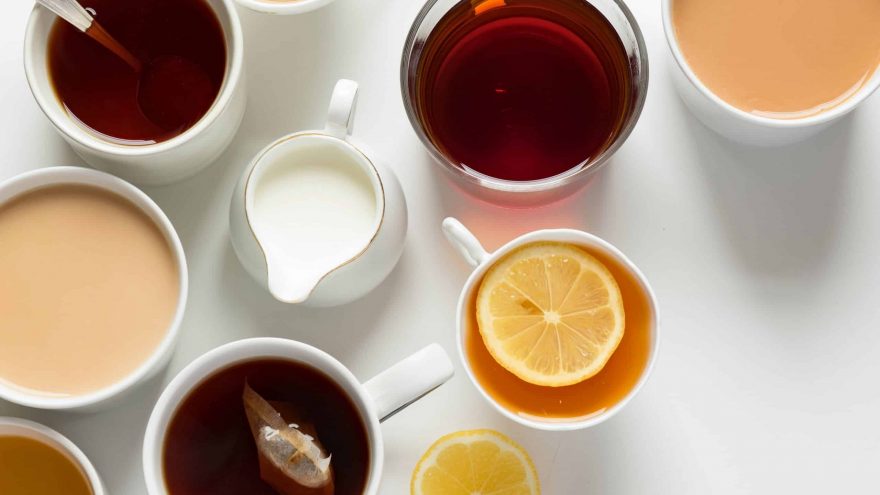 Green Tea vs Coffee – Which Is Healthier?
thefitbay.com
Green Tea vs Coffee – Which Is Healthier?
thefitbay.com
The black coffee vs green tea debate has been an ongoing one for a long time. They’re both packed with caffeine and have some great healing benefits, but is one better than the other?
The short answer is… It depends.
According to the USDA Agricultural Research Service, coffee is the second most consumed beverage in the US after water (1). Tea gets a mention too but does not specify green tea, so we can assume it’s normal tea (black tea or with sugar and milk).
A hot mug of java is the go-to morning drink for many people, so most of us are beginning our days with a good dose of caffeine. Green tea is becoming more popular, especially in the health and fitness industry. One of the best green tea characteristics is its versatility.
Let’s check out the similarities, differences, and benefits of both so we can work out, which is best to include in our daily caffeine intake.
Comparison
There are some important similarities between coffee and green tea, but they have their differences too.
Characteristics
It’s hard to mistake one for the other when it’s in a mug in front of you. The characteristics of each drink are quite specific and include a particular scent and taste.
Aroma
The smell of coffee is unmistakable! It’s what wakes so many of us up in the mornings. While there’s a general coffee scent, the aroma can change subtly depending on whether it’s a dark, medium or light roast. Strong, spicy, or bitter are some ways to describe the way this beverage smells.
Green tea has a much more subtle aroma than coffee. It’s usually fairly earthy but in a light and natural way. It’s definitely not quite as potent as java and might not even be noticeable when you walk into a room.
Body
This refers to how the liquid feels on your palate. Is it smooth, silky, heavy, thick, light?
Coffee tends to be heavier than green tea. It’s a more full-bodied drink and feels thicker when drinking it. Teas are lighter and thinner in body.
Taste
The taste of our favorite morning drink can become quite technical based on the roast you choose. Light roast coffee may have a bit of acidity to it, while medium roast tends to be more balanced with less acid. Dark and extra dark roasts are much fuller in taste, ranging from spicy to bitter or burnt in flavor.
If you aren’t used to the taste of green tea, that first sip can shock you with its bitterness. Although there’s a variety of green teas that have different tastes, they’re more earthy and lighter than coffee. Green tea may taste earthy, nutty, vegetal, or citrusy.
Health Benefits
Both drinks have some well-known healthy effects for both the body and the brain. It’s worth remembering that although they can be healthy, the benefit you get from them will depend largely on three other things:
- How much of it you drink.
- Your diet.
- Your lifestyle.
Coffee and green tea can provide some great benefits, but they’re not miracle workers! You’ll need to be drinking them as part of a balanced diet and healthy lifestyle to really gain from them.
Physical Benefits of Coffee
Drinking coffee can have some significant effects on your physical health if it’s consumed in moderation. Some positives include:
Pain Relief Properties
Some studies have shown that caffeine content can be effective in providing relief from pain. This is probably due to caffeine’s anti-inflammatory properties (2). There does seem to be some evidence to support the fact that these pain-relieving characteristics are more prominent when one is sleep-deprived (3).
Of course, just the psychological boost of having a warm, tasty, and delicious-smelling cup of joe when you’re sore could help release pain-easing chemicals in the body.
However it works, it’s worth trying a cup of coffee next time instead of synthetic meds.
Can Improve Sporting Performance
Because caffeine is a legal stimulant, partaking in a bit of it before a sporting event can improve your performance (4). How much you take before a game is really the deciding factor on whether it gives you a boost or has an adverse physical effect (5).
When used in moderation, it can be a better alternative to pre-workouts filled with chemicals and stimulants that may have worse side effects.
May Reduce the Chance of Diabetes
Although researchers seem unsure of the reasons behind it, an increase in your daily caffeine content helps reduce the risk for type two diabetes by 11 percent (6). This is significant for those who are pre-diabetic. Simply upping your daily amount of coffee could definitely appeal to those who may be reluctant to go on meds.
Physical Benefits of Green Tea
Green tea is also packed with physical benefits and is well worth including in your diet. Here are some of the most common healthy side-effects of green tea.
Reduces Inflammation
This beverage is known to be an effective anti-inflammatory (7).
Tea contains natural chemicals called polyphenols, which are great at reducing the number of free radicals in the body (8). This helps significantly reduce pain, swelling, and damage in cells.
It’s versatile for this purpose too. Drinking the tea can help bolster the immune system by reducing inflammation, and the teabags can also be applied to the skin to minimize topical pain, infection, swelling, or tenderness.
Lower Risk of Heart Disease
The culprit in many cardiovascular disease cases is LDL cholesterol and triglycerides. Green tea helps to lower both of these in the body, so consuming it regularly can reduce the risk of heart disease and stroke (9).
The prominent component in green tea, catechins, have a multitude of fantastic properties, including anti-inflammatory, antioxidative, anti-hypertensive, and anti-thrombogenic (10).
This combo of effects can be highly effective at lowering risks when it comes to cardiovascular problems.
Improves Skin Health
Green tea is one of the latest, greatest ingredients in skincare products (11). It’s not without reason, though.
Its ability to neutralize free radicals can have noteworthy effects on skin health (12).
Using a product infused with the tea or simply a teabag can have anti-aging, wound healing, and rash-relieving results.
Mental Benefits of Coffee
The benefits don’t stop there. In addition to some amazing physical advantages, the effect of coffee on the mind is also well documented.
Improves Concentration & Focus
Coffee is known to be a pick-me-up that improves wakefulness. Considering that 35% of adults get less than 7 hours of sleep per night every night, the need for something to help us focus during the day is high (13).
The caffeine content in a mug of coffee may also help reduce that sleepiness that hits out of nowhere halfway through the day (14).
Of course, you need to be careful not to drink it too late in the day, or you may have trouble sleeping later.
Can Improve Mood
If you live with someone who needs their daily coffee, you’ll understand!
Studies are varied on this topic, but they suggest that coffee intake (not just caffeine) can help reduce depression (15). The fact that it improves alertness also means that socializing is easier, productivity skyrockets, and energy levels are increased (16).
All of these factors assist in improving overall mood.
Mental Benefits of Green Tea
Green tea also has beneficial effects on the mind.
Can Improve Memory
This drink is touted as one that helps lower the chances of dementia and other cognitive and memory-related conditions (17, 18). There also seems to be a good effect on working memory, which is where short-term memories are stored until they are converted to long-term or forgotten (19).
Helps Reduce Anxiety
Green tea definitely doesn’t have the same jittery effect as coffee. It contains L-theanine, which is a calming agent that can reduce anxiety without causing that shakiness that too much caffeine can (20).
Of course, it’s not a miracle beverage—if your anxiety is severe, it’s still a good idea to check with your doctor and don’t expect your increased tea intake to get rid of it.
Antioxidant Effects
The antioxidant effects of both drinks are widely known. Both green tea and coffee contain polyphenols which fight free radicals and reduce disease and inflammation in the body.
Coffee has less antioxidant effect than green tea, but both are significant enough to be helpful to the body (21, 22). It’s also not known whether the roasting process helps or hinders coffee’s antioxidant properties, but it’s a fact that green tea is richer in antioxidants than coffee.
Caffeine Levels
Although tea leaves contain more caffeine than coffee beans, it’s all about how much of said item you are using in your drink.
Typically, a great cup of joe needs more coffee added to it than a cup of tea needs tea leaves. This means that in the end, your cup of coffee is packing a more powerful caffeine punch than your green tea.
Recap
Tea leaves contain more caffeine than coffee beans; the secret is in the way the drink is prepared. Your cup of coffee will be richer in caffeine than your cup of green tea or black tea.
When Is Green Tea Better?
Prepare yourself a soothing cup of green tea when:
- You’re feeling anxious.
- You start to notice flu-like symptoms.
- Bedtime is less than 6 hours away.
- You’re suffering from acid reflux.
When Is Coffee Better?
Have a mug of strong coffee when:
- You’re feeling sleepy at work.
- An energy boost is required before you exercise.
- You’re feeling a little irritable.
- You are struggling to focus.
Pros & Cons
Both beverages have advantages and disadvantages that are worth learning about before you decide which should prevail in your daily life.
Most of the disadvantages only show themselves when the beverage is consumed in vast quantities. It’s still worth knowing about them, though, so you can make an informed decision.
Green Tea
Green tea is packed with excellent properties and has fewer disadvantages than coffee. It’s generally drunk without any additions, except perhaps honey or lemon. This fact can significantly increase the health benefits, as it’s pure and avoids any artificial sweeteners.
Pros
Some definite advantages of green tea are:
- Lower in caffeine than coffee.
- No need for artificial additives.
- Improves memory.
- Increases immunity.
- Fights inflammation.
- Balances blood sugar levels.
Of course, everything has its disadvantages too. Green tea gets a thumbs-down for these reasons:
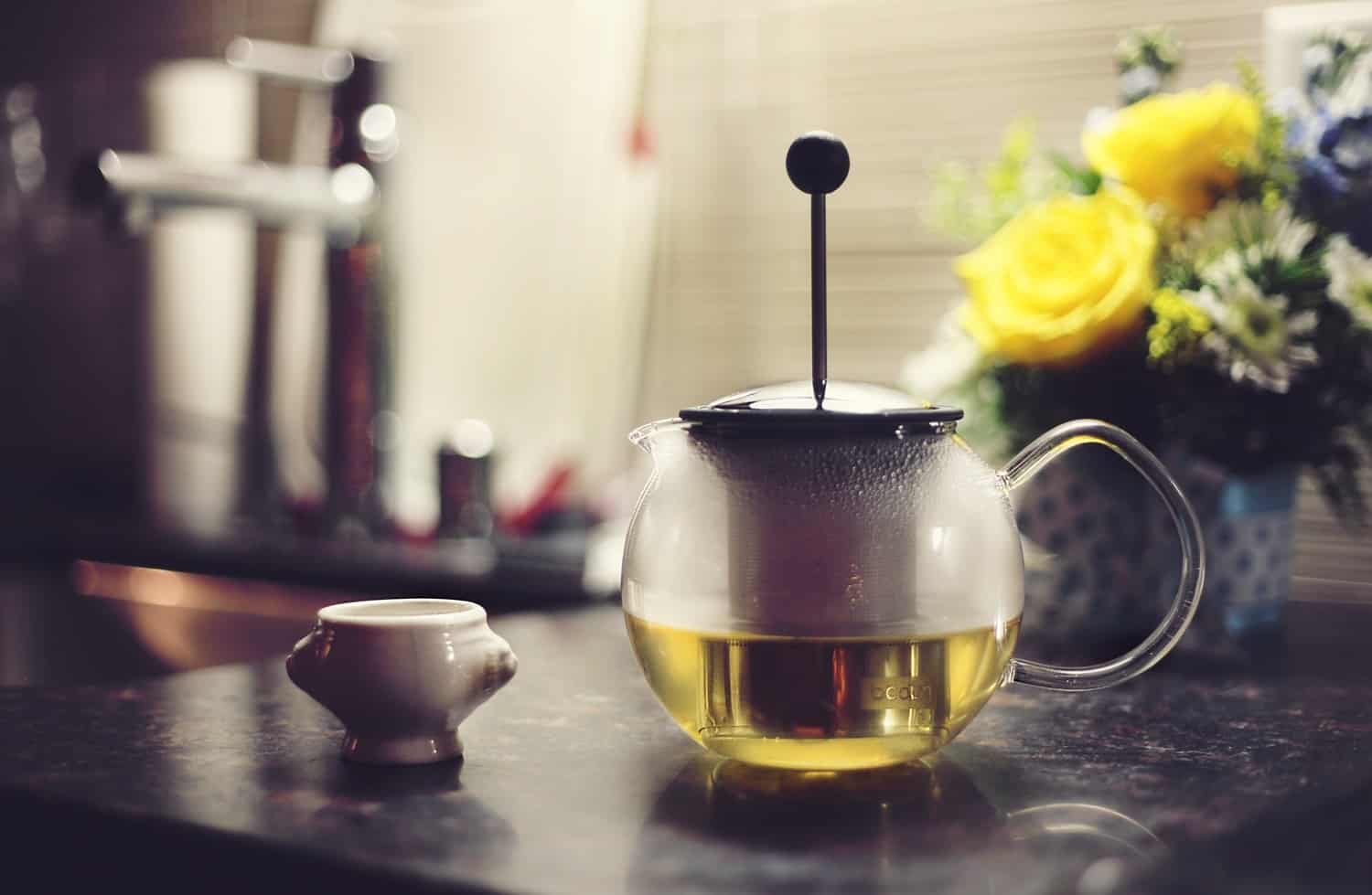
Coffee
Although nobody wants their morning wake-up drink to be bad mouthed, there are some definite cons to choosing coffee over green tea. Of course, there are plenty of great things about it too, so there’s no need to forgo your favorite comfort drink.
Pros
Coffee gets some big thumbs-ups for these reasons:
- Tasty and aromatic.
- Provides an energy boost (both physically and mentally).
- Increases concentration and focus.
- Can reduce pain.
- May reduce chances of type two diabetes.
- Contains plenty of antioxidants.
Cons
The downside of coffee is:
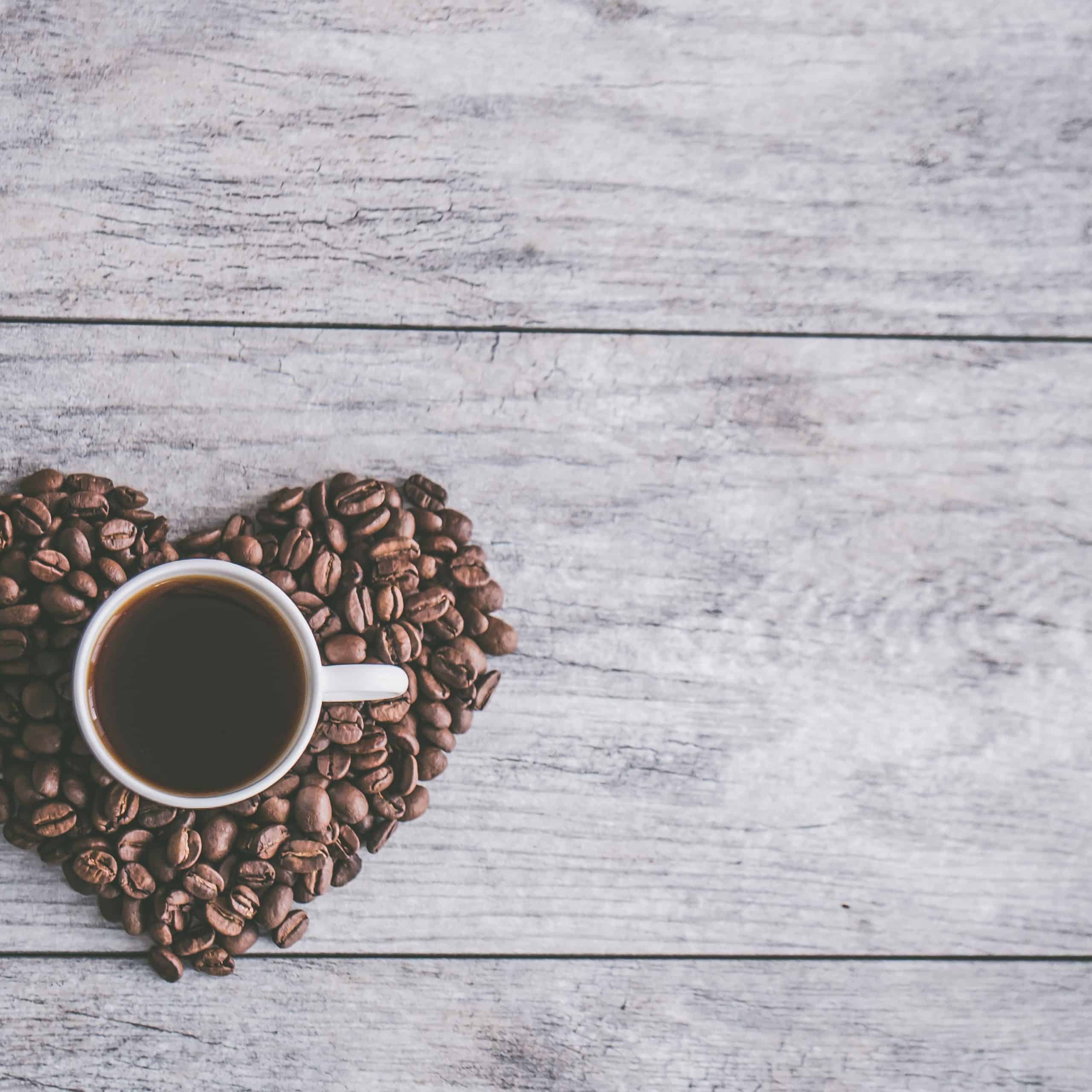
FAQs
Which Is Better and Why?
The answer to this question depends on a few things.
- How often you’re drinking it.
- What you’re adding to it.
- What you need from it.
If you’re drinking 17 cups a day, neither one is going to be doing the best it can for you (28). There’s such a thing as too much caffeine!
If you particularly like coffee, though, you may recoil at the taste of green tea.
The answer here really comes down to what you drink it for. If you require the taste, the aroma, and the pick-me-up, coffee will do it for you. If you want a calm, relief from cold or flu symptoms, or the long-term benefits of memory retention, then green tea is your best bet.
How Much Is Too Much?
Four cups of strong coffee per day fits right into the recommended 400mg of caffeine daily. Three to five cups is the equivalent for green tea.
Is Green Tea or Coffee Healthier?
The downside to coffee is that it often comes with artificial sweeteners, cream, or syrup that immediately negate a lot of the great benefits. If you’re brewing your coffee at home and leaving out the additional ingredients, then it’s most likely a delicious cup full of health benefits.
Green tea is often paired with lemon or honey, both of which have superb health properties themselves.
It’s up to you to make your choice of drink as healthy as you can.
Who Shouldn’t Drink Coffee?
Some people don’t react well to the caffeine content in coffee. If you get jitters, heart palpitations, or crash hard a few hours later, you’re probably better off sipping on some herbal tea.
Others who should monitor their caffeine intake if possible are:
Can I Replace My Coffee With Green Tea?
Sure you can! If that makes you panic, though, the good news is that you really don’t have to. Balancing your intake of both beverages will allow you the best of both their benefits and reduce the chances of suffering from any side effects.
If you are keen to make the switch entirely, though, you can.
You will still be getting a mammoth dose of antioxidants, anti-inflammatories, and immune support. It may not wake you up as effectively in those afternoon slumps, but hey, that’s what apples are for (31).
Recap
Coffee and green tea both have health benefits when consumed in appropriate doses. Coffee lovers, there’s no need to replace your coffee entirely with green tea. If you want to minimize the negatives of coffee, switch out a few cups a day for green tea. That way, you’ll get the best of both worlds.

Summary
The green tea or coffee debate doesn’t have a clear winner! Both are loaded with antioxidants and have some really super health benefits, as long as you drink them in appropriate amounts.
If you usually grab a sugar-filled, cream-loaded, syrup-drizzled cup of joe on your way to work, then it’s a no-brainer—green tea is going to be way healthier for you and probably help you drop some pounds too.
If you dig a strong cup of black coffee, or with moderate amounts of a healthier sweetener and milk, then your coffee is probably doing more good than bad.
For the best health results, go half and half.
You can reap the rewards of both by alternating during the day and making sure you stick to tea within 6 hours of bedtime.


